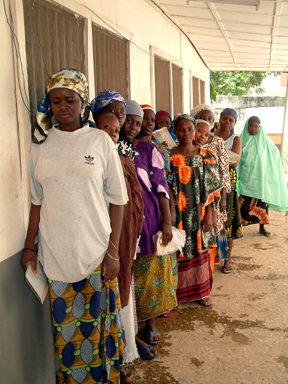The Maternal, Newborn and Child Health (MNCH2) program is implementing a DFID-funded project which aims, among others, to strengthen the Health System in Northern Nigeria towards “saving lives and improving the quality of life for women and children”. Given the centrality of the health financing building block to the performance of the health system, an important component of the program is aimed at improving the health financing function toward achievement of universal health care (UHC) through effective resource mobilization, efficient pooling of available resources and equity-enhancing purchasing of healthcare for the benefit of women and children in the states. The project is being implemented in 6 DFID-supported states of Northern Nigeria namely, Kano, Jigawa, Kaduna, Yobe,
Zamfara and Katsina. A component of the support will strengthen the capacity of government and its agencies for improved use of data for decision-making, information dissemination, health expenditure estimation and resource tracking. The project will also support the government to develop and implement models for reducing the financial barrier to healthcare access/financial risk protection from catastrophic health expenditure.
With increasing acceptance and support for SSHIS, questions bothering on effectiveness and efficiency of the proposed schemes require some upfront answers. These include questions of what percentage of the population can be covered; how generous the benefit package of health care should be to ensure equity; how much government can contribute from the total revenue of the state; how much will be average premium contributions; how many years of payment of subsidy will the resources cover before long-run financial solvency is jeopardized; and what is the total amount that can be mobilized from external sources to expand coverage, extend the solvency period and enlarge the benefit package. Answers to these questions prior to the establishment of state health contributory structures will ensure that health financing reform through social health insurance is evidence-based.
The objective of the study is to undertake economic and financial modelling, feasibility assessment and analysis of Kano State Contributory Healthcare Scheme (KSCHS ). For this analysis, CHECOD will model the likely expenditure levels and revenue potentials of KSCHS, analyze alternative scenarios for health financing and health insurance, and assess the affordability of these options using various streams of resource flows identified in the study.

